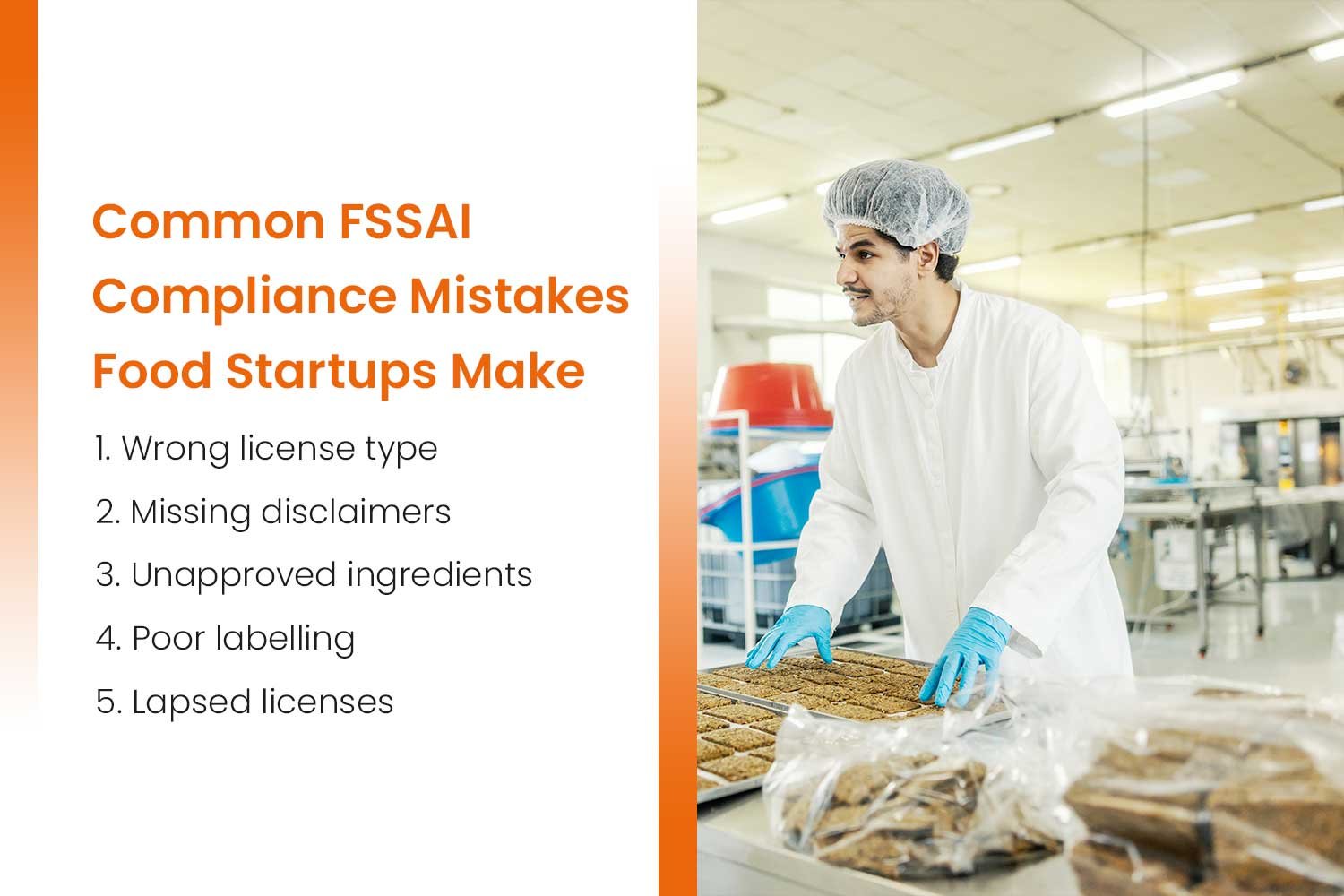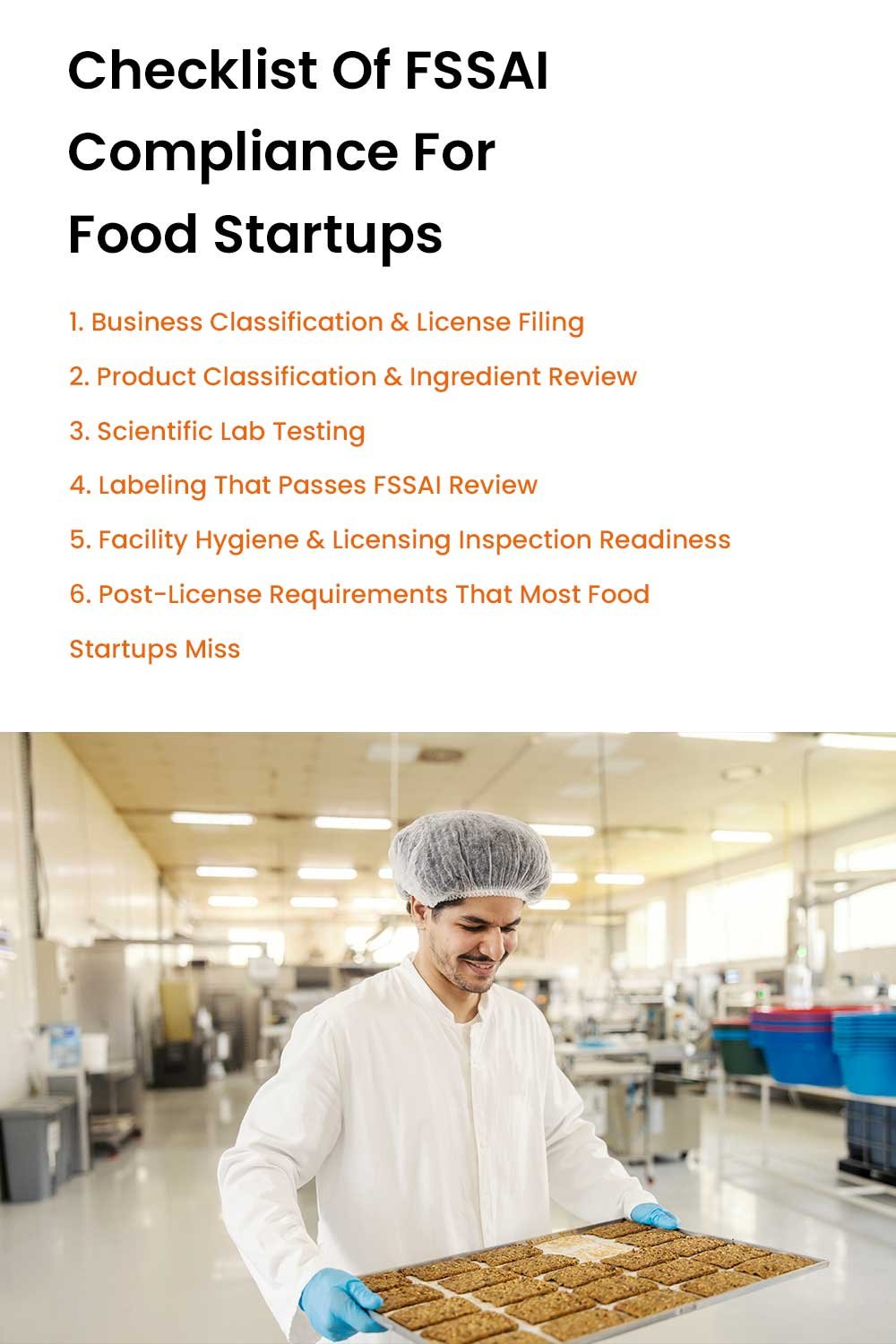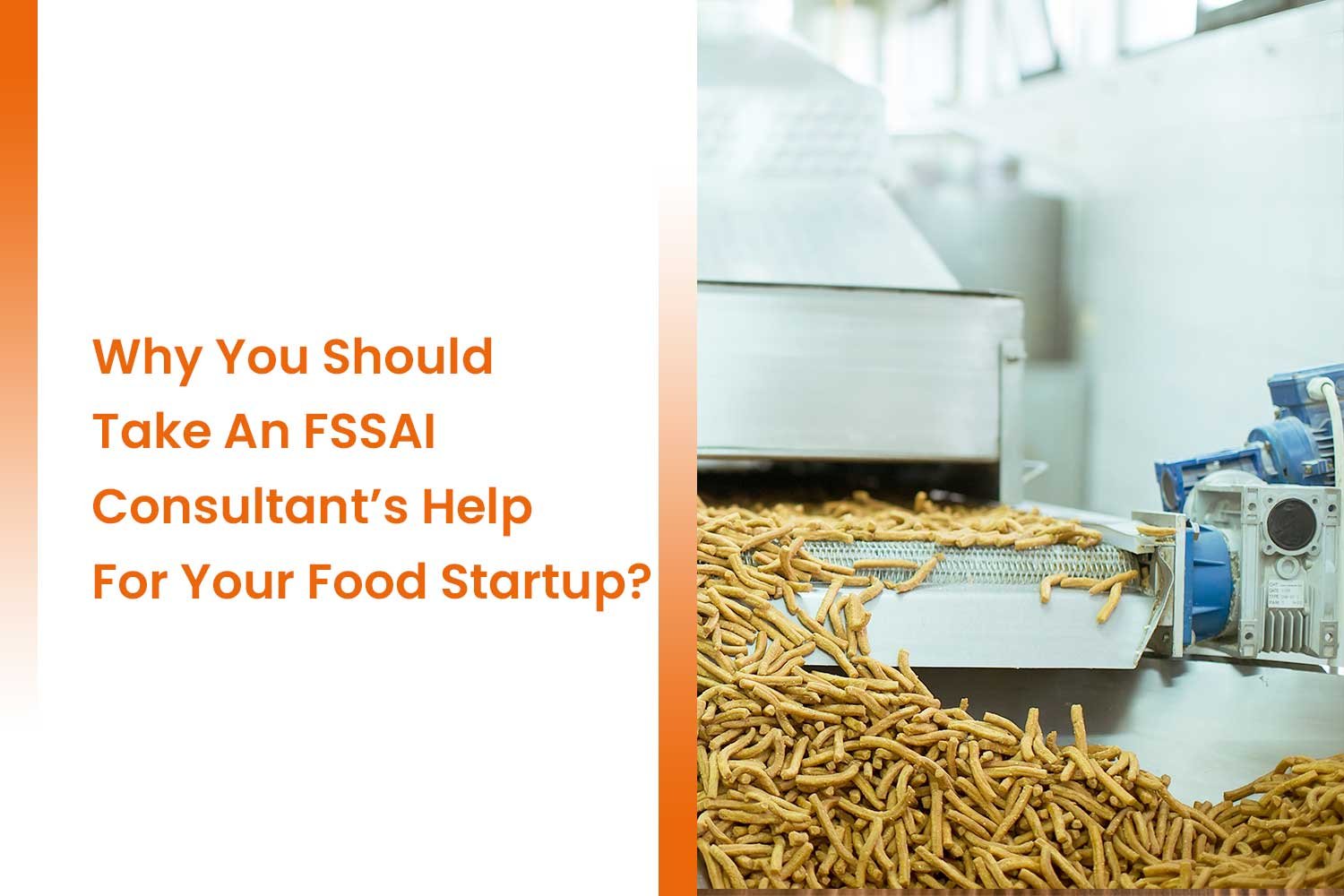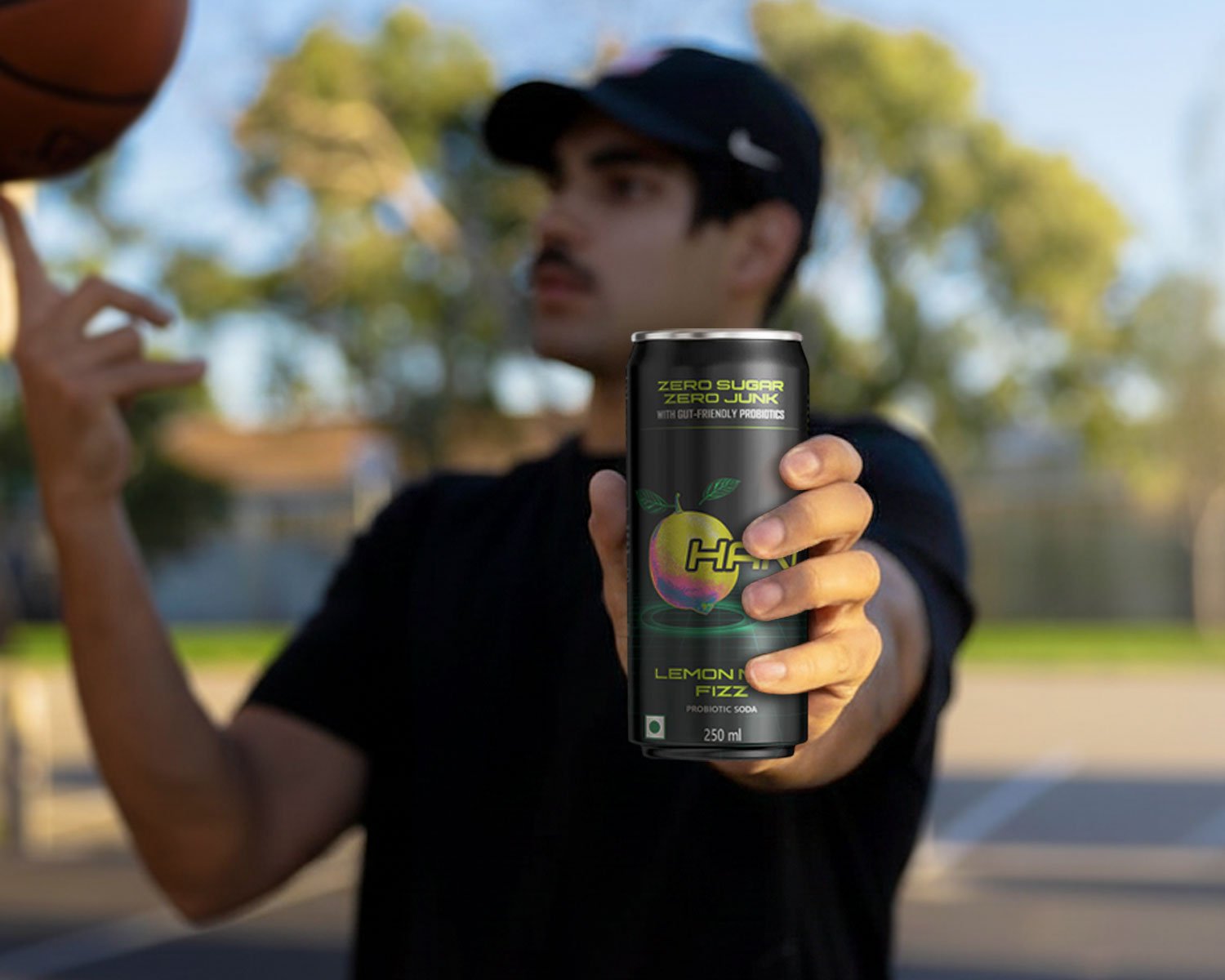FSSAI compliance for food startups means sticking to the safety, quality, and labeling regulations that are mandatory under the Food Safety and Standards Act, 2006, enforced by the Food Safety and Standards Authority of India. It is necessary for all the industries, including manufacturing, distributing, selling, importing, or exporting food products, like nutraceuticals, functional foods, or health-conscious recipes.
FSSAI non-compliance can result in the food startups to:
- License cancellation or rejection
- Penalties, recalls of the product, and some major legal actions
This guide helps food startups to get FSSAI compliant from day one, with guidance from a nutraceutical compliance consultant in India.
Why FSSAI Matters More For Functional And Nutraceutical Food Startups?
If your food product includes claims like “boosts immunity,” “supports digestion,” or “rich in antioxidants,” the FSSAI regulators pay closer attention to them. These categories include:
- Ingredients like ashwagandha, ginseng, and curcumin
- Fortifiers like iron, B12, or probiotics
- Imported herbal extracts or bioactives
These components are strictly regulated under FSSAI registration for the nutraceutical business, and mistakes in them can result in rejection of the license or bans on the food products.
Related Blog: Functional Food Startups’ Success
Common FSSAI Compliance Mistakes Food Startups Make
- Wrong license type – They fill out the basic license even when they are selling globally through online platforms.
- Missing disclaimers – Some food startups miss the disclaimers, especially for nutraceuticals and health claims that can trouble them.
- Unapproved ingredients – They use unapproved ingredients, like imported herbs, without clearance
- Poor labelling – No batch number or false claims like “cures disease” they mentioned on the labels.
- Lapsed licenses – Simply forgetting renewal deadlines
How To Select The Right FSSAI License?
Your license type depends on how much you sell, where you sell, and how your product is made. To pick the right FSSAI license for a food startup, look for:
| License Type | Who It’s For | Annual Turnover |
| Basic Registration | Home kitchens or micro-enterprises | Up to ₹12 lakh |
| State License | Mid-sized brands, local sales only | ₹12 lakh – ₹20 crore |
| Central License | Pan-India, e-commerce, import/export | ₹20 crore+ or national operations |
Checklist Of FSSAI Compliance For Food Startups
Business Classification and License Filing
Identify the way of your operations, as a manufacturer, marketer, or re-packer. Then, apply for the correct license through the FSSAI portal. A functional food regulatory consultant makes sure of:
- Proper categorization
- Timely documentation (PAN, address proof, layout plan, product list)
- Avoid common mistakes that result in rejection
Product Classification & Ingredient Review
Each functional food product must be classified under an FSSAI-approved Food Category System (FCS) code. Like:
- Herbal drinks- FCS 14.1.4
- Supplement powders- FCS 13.6
- Functional cookies- FCS 7.2
Also, ingredient lists must comply with FSSAI nutraceutical regulations:
- Permissible herbs and plant extracts
- Safe upper limits of vitamins and minerals
- Banned or restricted substances
Scientific Lab Testing
Food startups must make sure that their products are not just functional but also safe and properly labeled. Mandatory scientific lab testing helps verify:
- Nutritional claims
- Absence of microbial contaminants (yeast, molds, pathogens)
- Heavy metal limits (lead, mercury, arsenic)
- Stability and shelf-life for a central FSSAI license for functional food claims
FSSAI consultants facilitate lab coordination and give technical results to avoid non-compliance in the process.
Labeling That Passes FSSAI Review
FSSAI labeling requirements 2025 and strict packaging requirements include:
- Product name and category
- Net quantity and nutritional facts
- List of approved ingredients under FSSAI and allergen declaration
- Manufacturer/importer details
- FSSAI logo and 14-digit license number
- Date of manufacture and expiry
- Batch number
- Veg/Non-veg symbol
For nutraceutical products, the following are also mandatory:
- Functional claim disclaimer: “NOT FOR MEDICINAL USE”
- Specific dosage instructions
- Warning statements for vulnerable groups (e.g., pregnant women)
Facility Hygiene & Licensing Inspection Readiness
FSSAI licenses are often granted after physical inspections. FSSAI consultant for food startup helps prepare for:
- Layout planning in compliance with Good Manufacturing Practices (GMP)
- Staff hygiene protocols
- Clean zones for packaging and processing
- Documentation of water quality, pest control, and SOPs
Post-License Requirements That Most Food Startups Miss
FSSAI compliance doesn’t end with license approval. You must:
- File annual returns (Form D1 / D2)
- Update the license if there’s a change in product, premises, or partners
- Renew your license before it expires
- Be prepared for surprise inspections
Renewal, Annual Returns, and Ongoing FSSAI Compliance For Food Startups
Getting your FSSAI license is just the start. To keep your food business running smoothly, you need to stay on top of a few simple but important tasks:
- Renew your license at least 30 days before it expires to avoid last-minute issues.
- File Form D1 every year (by May 31) and Form D2 twice a year if you work with dairy.
- Update your license if you change your product line, address, or business setup.
- Keep your test reports, batch records, and hygiene logs handy in case of an inspection.
Many startups overlook these basics and end up facing avoidable delays or fines. With a consultant by your side, staying compliant becomes easy and stress-free.
Why You Should Take An FSSAI Consultant’s Help For Your Food Startup?
Getting FSSAI approval isn’t just about filling out a form—it’s about making sure every part of your product and process follows the rules. A wrong label, missed ingredient limit, or wrong license type can hold up your launch or cost you later.
A good consultant helps you:
- Pick the right license for your business and plans
- Check your ingredients and flag anything that could be a problem.
- Get your label right the first time, no guesswork.
- Sort out lab testing, reports, and documentation
- Stay on track with renewals, updates, or inspections.
With a consultant, you save time, avoid common mistakes, and get peace of mind—so you can focus on building your brand, not chasing paperwork.
Read More: Food Safety Consultant & Recipe Formulation Experts
Dream Big, Launch Clean. Start Your FSSAI Journey Here.
Have a great product idea in the works? Don’t let FSSAI rules hold you back. Whether you’re launching a herbal drink, protein snack, functional food, nutraceutical recipe, or wellness food, we’ll help you get the right license, fix your labels, and sort out all the must-haves, without the hassle.
Let’s make sure your product is ready to hit the shelves the right way. Reach out to us on +91 8130404757
Talk to us today and take the first step toward a clean, confident launch.
FAQs
What’s the biggest mistake food startups make with FSSAI compliance?
Filing the wrong license or skipping ingredient checks. A lot of food startups apply for the Basic License even when they’re selling online across India or using ingredients like botanicals, probiotics, or imported extracts. That’s where problems begin; your application may get delayed or rejected.
Can my product get rejected if I use imported ingredients?
Yes, if they’re not on FSSAI’s approved list. If you’re using imported herbs or extracts, you need to be sure they’re cleared under FSSAI rules. If not, your product might get banned.
How do I back up health claims like “boosts immunity” on my label?
FSSAI needs proof for any functional or health claim you make. A consultant will guide you through what tests are needed, help get the reports, and make sure your claim is worded right, so it doesn’t get flagged.
Is it worth hiring an FSSAI consultant when I’m just starting?
Yes, if you want things done right and fast. Trying to figure out licensing, labels, and ingredient rules on your own can be confusing and risky. A consultant gives you clarity, handles the paperwork, and helps you launch without delays or mistakes.























